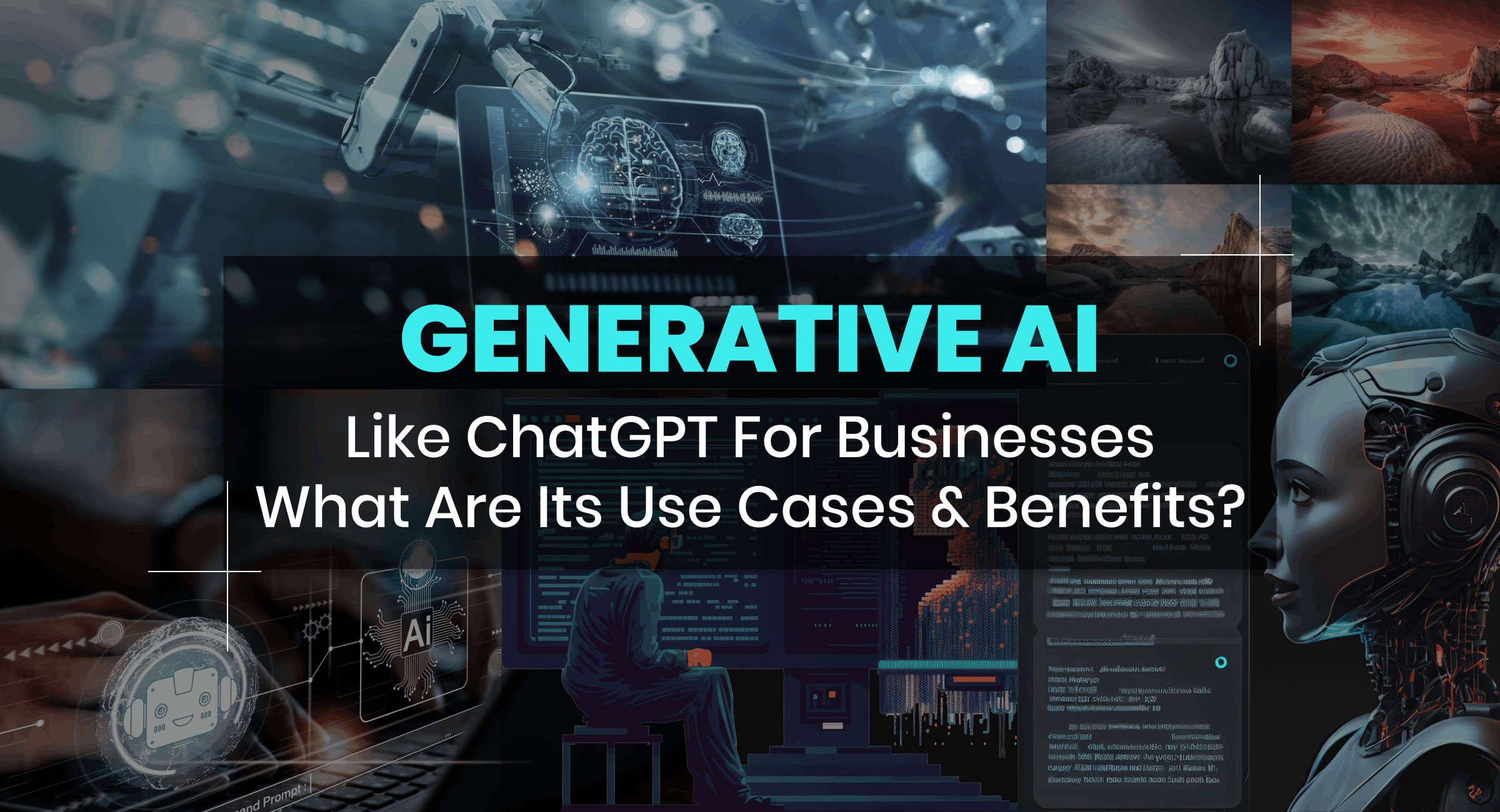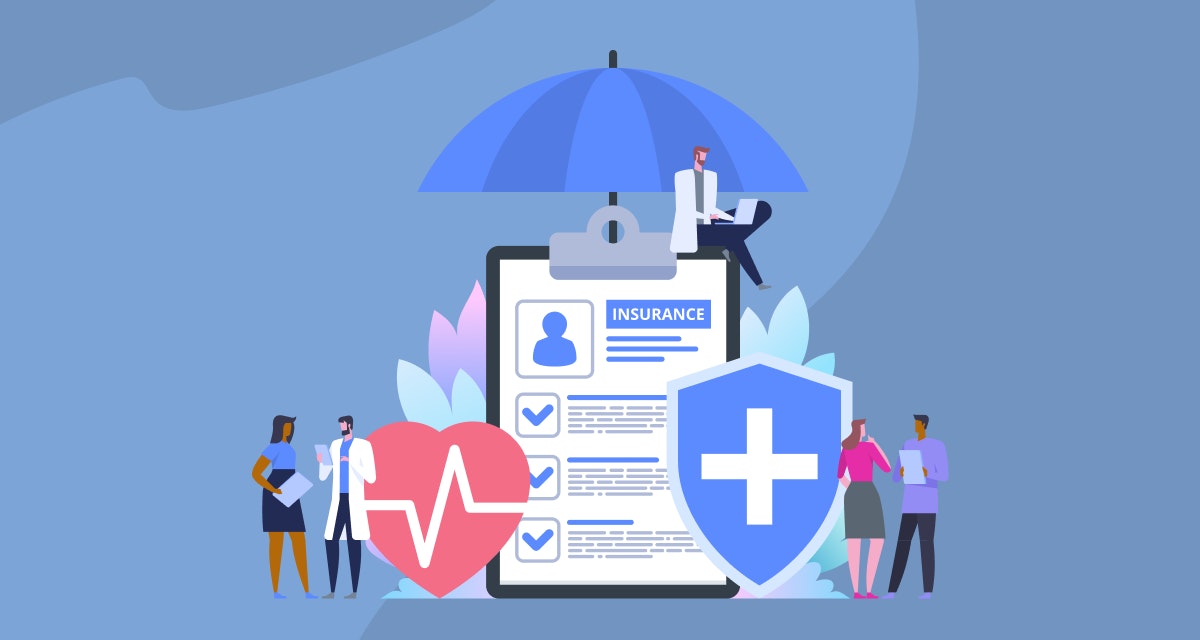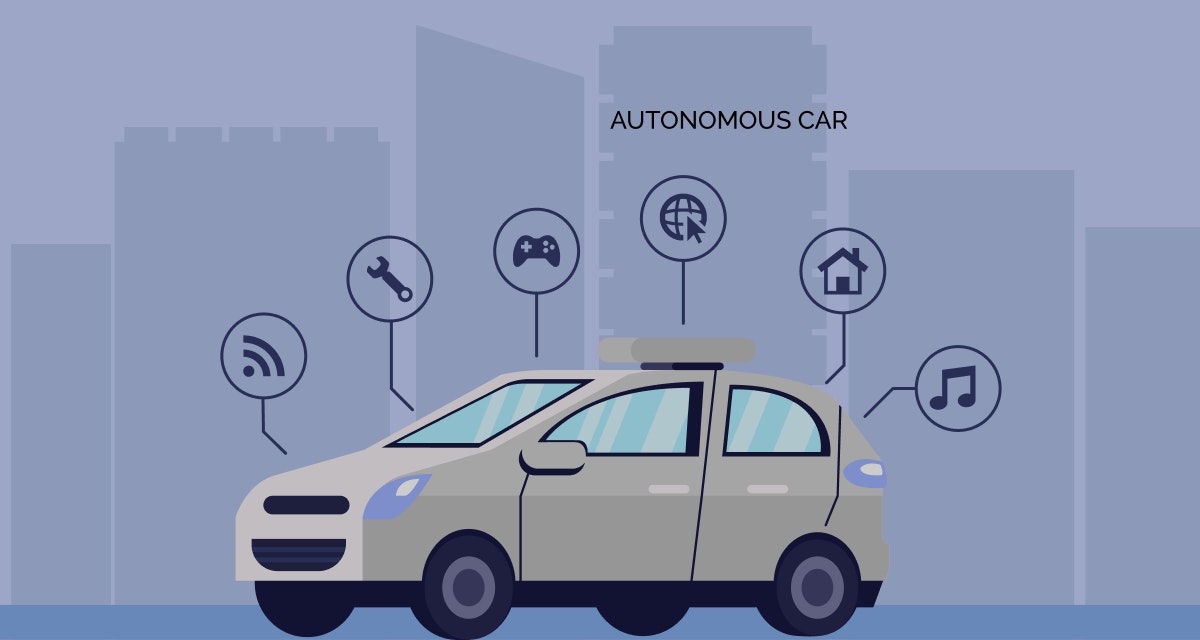Table of Content
In the modern digital era, businesses continuously seek innovative methods to enhance their operations and outpace competitors. One such groundbreaking technology is ChatGPT for Business Intelligence, a large language model developed by OpenAI in late 2022.
ChatGPT employs Artificial Intelligence (AI) and Natural Language Processing (NLP) to generate human-like responses to user queries. Its contextual understanding and coherent, grammatically accurate text generation make ChatGPT invaluable across industries like eCommerce, healthcare, and banking.
As revolutionary as it may be, Generative AI chatbots have existed since the 1960s, evolving from programs like Eliza to become resources for answering questions and providing customer service. The consensus on the usage of chatbots is overwhelmingly moderate to very high, with only a minority of survey participants expressing that chatbots should never be used.
Research also predicts that the global chatbot market will reach $9.4 billion by 2024. While the traditional chatbots relied on predefined answers and functioned similarly to search engines, the new entrants comprehend user intent more effectively and continuously gather data from the internet to self-improve, offering a more intelligent solution for users.
How does implementing chatbots help businesses?
Chatbots offer instant support, ensuring prompt responses to customer inquiries and increasing overall satisfaction. They enable businesses to simultaneously handle a higher volume of queries and automate repetitive tasks, allowing employees to work on more complex issues.
What is Generative AI? What are its main types?
Generative AI refers to AI models that can create new data samples based on the patterns and structures they learn from existing data. These models can generate content such as images, text, and music, or even predict future data points. There are two primary types of Generative AI models:
1. Generative Adversarial Networks (GANs) comprise two neural networks, a generator, and a discriminator, that work together in a competitive setting. The generator creates new data samples, while the discriminator evaluates their authenticity compared to real data, resulting in increasingly realistic generated data.
2. Variational Autoencoders (VAEs) are a type of autoencoder that uses unsupervised learning to encode input data into a lower-dimensional latent space, then decode it back to the original data. VAEs introduce randomness into the encoding process, enabling the generation of new yet similar data samples.
Popular Generative AI use cases for Businesses
Generative AI is revolutionizing how businesses operate, offering myriad applications that enhance creativity, efficiency, and customer engagement. Here is a list of popular use cases you should know about:
1. Customer service
Generative AI can be incorporated into chatbots to streamline customer service and deliver accurate and natural-sounding responses to queries by automating repetitive tasks such as answering FAQs. It can offer product suggestions, technical assistance, and troubleshoot customer issues, ultimately saving businesses time and resources.
Moreover, proactive messaging and self-service options powered by Generative AI enable customers to find answers swiftly without waiting for a human agent. This leads to quicker response times and heightened satisfaction levels.
For example, an AI chatbot designed for pet clinics can engage customers and provide personalized guidance in choosing the most suitable products for their pets' needs. Similarly, an AI-driven conversational chatbot for automotive companies can assist with common customer questions, offer specialized repair advice, and share maintenance tips.
2. Sales and marketing
Generative AI has the potential to revolutionize sales and marketing by providing businesses with powerful tools to engage customers, personalize experiences, and optimize their strategies. For instance, it can be used to create chatbots that can answer customer queries and nurture leads by qualifying prospects and collecting relevant information.
By analyzing customer interactions, preferences, and browsing history, Generative AI for marketing and sales can offer personalized product recommendations and upsell opportunities tailored to each individual customer, leading to increased satisfaction, loyalty, and, ultimately, higher conversion rates.
The technology can also help fetch customer feedback through various channels such as social media, chatbots, and email, which can be used to uncover patterns and insights, helping businesses improve their marketing strategies by generating persuasive headlines, personalized email campaigns, and social media posts that resonate with the target audience.
3. Human resources
A conversational chatbot's NLP capabilities allow for real-time analysis of conversations, enabling rapid assessment of candidates' skills and suitability. So by automating initial candidate screening and interview scheduling, HR professionals can save time and effort in finding the best fit for a job.
Plus, such chatbots can facilitate new employee onboarding by providing information and addressing common HR-related questions. This AI technology helps conduct employee satisfaction surveys, collect feedback, assist with benefits enrollment, and manage other administrative tasks.
In addition, conversational chatbots can supply training resources and information to employees, ensuring they have convenient access to the knowledge they need to excel in their roles. Some examples of this technology in HR include interview coaching, job search and recommendation, and serving as an HR assistant for internal operations.
4. Education
AI chatbots can answer student questions and provide additional resources, such as study guides and interactive quizzes, to enrich the learning experience. They offer personalized feedback and guidance to students based on their educational goals, preferences, and progress.
By conducting assessments and evaluations, AI technology can also effectively monitor student progress and deliver customized support to help them succeed. Students can access online courses and educational materials, allowing flexible and convenient learning options.
Additionally, AI chatbots provide career counseling and job placement services to students, guiding them toward suitable career paths and assisting them in making informed decisions about their futures.
A common example is AI-powered chatbots serving as safe research tools for students, filtering out irrelevant or inappropriate content and helping them access the information they need for academic success.
5. Healthcare
AI-powered chatbots offer patient support and information by addressing common questions about symptoms, treatments, and medications. They can help patients better understand their conditions and provide pertinent advice.
The technology assists healthcare professionals in patient data analysis, delivering real-time insights and recommendations based on collected data, enabling them to make more informed decisions about personalized care.
Generative AI also allows healthcare organizations to conduct patient satisfaction surveys and gather feedback. By analyzing the feedback received, they can improve their services and better address the needs of their patients.
In addition, conversational chatbots can aid with appointment scheduling and medication management, reducing the workload on healthcare staff and ensuring patients adhere to their prescribed treatment plans.
Furthermore, Generative AI use cases in healthcare include facilitating remote monitoring and care for patients facing barriers to in-person medical care. A common example is a therapist and counselor chatbot that can offer emotional support and guidance to individuals struggling with mental health issues or facing difficult life circumstances.
6. Finance
By understanding the users' financial objectives and undertaking real-time market data and analysis, AI chatbots can give personalized financial planning advice and recommend suitable investment products to customers based on their individual goals and risk tolerance.
Businesses can avail of tax preparation and planning services, streamlining the process for users and helping them maximize their tax savings. Moreover, staying updated with the latest tax regulations and receiving accurate and timely tax advice is not a problem with technology.
If businesses want real-time financial reporting and analysis, conversational chatbots make it happen by focusing on their financial performance and aiding smart decision-making.
An example of Generative AI in finance would be how conversational chatbots can be customized to offer tax preparation and planning services, helping users navigate complex tax regulations and maximize their tax savings. Please note that they do not replace professional financial advice but rather complement the services provided by financial experts.
Revolutionize your business operations and products with AI to provide exceptional customer experiences.
Learn More7. SEO
Generative AI for SEO can discover long-tail keywords with lower competition and assess market trends to create SEO-friendly content that aligns with user search intent, attracts more organic traffic, and improves search engine rankings. Moreover, Generative AI can improve a website's ranking potential by understanding the context and meaning behind search queries.
The technology can also prioritize keywords based on search volumes and suggest high-quality backlink opportunities for fresh and existing content to optimize readability. In terms of UI/UX, Generative AI can assess visitor behavior and enumerate changes to the website's structure and design to enhance the navigation and lower the bounce rate.
8. Banking
Imagine having a chatbot that can serve as a 24/7 virtual assistant, answering customer queries, handling loan-related inquiries, and assisting with account management, bill payments, and transactions. Generative AI makes it so much more possible for banks.
Conversational chatbots can analyze large volumes of transaction data and flag suspicious activities, helping banks identify and prevent fraudulent activities more effectively. They can automate tasks like customer data collection, credit score analysis, and risk assessment and simplify the loan origination process.
The technology offers personalized investment recommendations based on customers' financial goals, risk tolerance, and market trends to enhance wealth management services. It can monitor transactions, identify potential compliance violations, and help banks maintain regulatory compliance, avoiding costly penalties and protecting their reputation.
The chatbots can also assist customers in creating personalized financial plans, including budgeting, debt management, retirement planning, insurance options, and estate planning. They can automate KYC and AML processes and improve compliance accuracy by verifying customer identities, checking users against sanction lists, and flagging suspicious transactions.
Generative AI for use cases for banking ensures financial institutions can assess risks associated with lending and investment decisions, manage portfolios, and identify opportunities for diversification.
9. Ecommerce
Generative AI is a boon for eCommerce businesses. The AI chatbot, for instance, can be integrated with the order management system to track order statuses, update customers on their orders, and handle any order-related inquiries. This automation saves time, reduces manual effort, and improves customer satisfaction.
Similarly, by simply inputting the tracking number or order details, customers can receive the latest information on their package's location, estimated delivery time, and any delays, thanks to Generative AI. This reduces the need for customers to contact the support team and frees up support agents to handle more complex issues.
The chatbot can also provide information on the return policy, initiate the return process, and generate return labels. This simplifies the return experience for customers by guiding them through the necessary steps to return an item.
The impact of Generative AI on business
First things first: Generative AI helps companies build comprehensive and personalized growth plans by identifying potential market gaps, evaluating competition, and forecasting financial projections.
Secondly, it studies data from multiple sources such as news outlets, social media, and industry reports to ascertain trends and insights that can be used to develop new products, services, and strategies in line with changing market demands. This saves the business time and resources that would have otherwise been spent on traditional brainstorming sessions.
Thirdly, Generative AI enables businesses to organize employee duties by examining their productivity levels, workloads, and skill sets to generate task lists tailored to their strengths and capabilities. This also reduces burnout and absenteeism in the workplace.
Lastly, AI technology helps prepare reports, documents, and other types of papers necessary to run the business in compliance with legal standards and industry best practices. This reduces the risk of fines and eliminates error-prone manual paperwork.
Generative AI for workplace learning and development
The technology is a valuable resource for training specialists, assisting in teaching and mentoring employees and business professionals in the workplace. Generative AI can help address inquiries, offer task feedback, aid in planning training sessions, and assess individual progress.
A conversational chatbot, for instance, can research topics, respond to questions, and even devise a customized learning plan based on individual needs and learning styles. This proves beneficial not only for career advancement but also for those seeking new roles within the company.
Generative AI for research, content creation, and business development
Conducting thorough research is paramount to creating insightful, valuable content, whether a blog post, whitepaper, or report. With Generative AI, users can access relevant data and knowledge from the datasets provided, distilling essential information into a digestible format.
Additionally, it can generate and test hypotheses through simulations, proving particularly useful in fields such as science, economics, and finance, where the complex evaluation of theories is conducted daily.
Challenges of Generative AI
This technology has been making waves in the business world, unlocking new possibilities and transforming industries. However, it is not all smooth sailing. Here are the main obstacles businesses must overcome:
1. Ethical concerns
Since these models require massive amounts of data to generate meaningful insights or content, the data they use may be sensitive and confidential. Additionally, there is the possibility of the misuse of Generative AI for defrauding others or creating fake content to spread misinformation.
2. Skill gap and training issues
The market has a significant skill gap for experts who can work with Generative AI effectively. Without the right skills and knowledge, developing and implementing Generative AI models that can provide meaningful insights or create original content can be challenging.
Additionally, a vast amount of data is required to train Generative AI algorithms. This can be tough for companies that do not have access to adequate training data or cannot afford to gather the necessary data.
3. Model accountability
Generative AI is often opaque, so it can be difficult to understand how these models make decisions or generate content. When something goes wrong, it can be problematic to determine who is responsible for the error or unintended consequences.
4. Content originality
Generative AI models such as LLMs can generate engaging content, but concerns about their originality exist. Since these models generally train on existing content available on the internet, there is a risk that the content they produce may be plagiarized or lack accuracy.
Revolutionizing growth: How Generative AI helps businesses skyrocket
Generative AI offers numerous opportunities for businesses to thrive and scale. Here is how:
1. Enhanced customer service
Integrating technology into customer support systems helps provide instant, efficient, and accurate responses to customer queries. The round-the-clock availability lessens response times and increases customer satisfaction.
2. Intuitive market research
Analyzing market trends, consumer preferences, and competitors to determine new business opportunities and make data-driven decisions is the new norm because of Generative AI.
3. Faster content creation
Utilizing Generative AI for creating various types of content, such as blog posts, social media updates, and email campaigns, can help businesses boost their content marketing strategy and drive more traffic to their website.
4. Smart code generation
Businesses can speed up software development using AI technology to create code snippets, templates, or even entire applications. Generative AI for developers reduces the time spent on repetitive tasks and allows developers to focus on more complex and innovative projects.
5. Personal assistance
Implementing the technology as a virtual personal assistant for employees to help manage their schedules, set reminders, and answer routine questions results in improved productivity and time management for the business.
Over to you
Do not wait to harness the potential of Generative AI. The future is bright for AI-powered chatbots, and businesses that adopt these cutting-edge solutions will experience significant benefits. Collaborate with a trusted digital solutions partner like Intuz to seamlessly integrate the technology into your business, ensuring maximum impact and ROI.
Eliminate the challenges that come with it through our support. Book a free consultation with us to transform your business.









